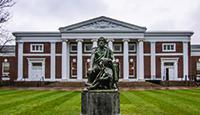Since the advent of “humanities computing” in the 1940s, known today as “digital humanities” (DH), the field has defined itself as a convergence of technologies and methods that shed light on areas of humanistic inquiry – that is, the study of human experience and expression as mediated through art, history, music, literature, performance, philosophy, and religion, among other frames (Klein and Gold 2012, 2016). Over the years, DH has redefined itself in response to the “ongoing churn of digital innovation” (Reid 2012: 354) and changing scholarly paradigms, from sound studies, new media, and graphic writing systems to intersectional feminism, critical race theory, and Global South studies. As DH practitioners work to diversify and decolonize the field, we confront tensions between DH mantras and the beliefs of communities we work with. These tensions are laid bare in 2019, UNESCO's declared year of Indigenous Languages. Artists and scholars from historically marginalized communities do not approach decolonization in the same ways. African-American writers have used DH tools as an “ethos of recovery” to document their histories of creative work (Gallon 2016), while Indigenous artists and scholars in Aotearoa (New Zealand), Canada, and the US have developed policies of data sovereignty that regulate recovery and revelation to outsiders. Policies and practices in Indigenous communities of Latin America diverge from those enacted in the "first-world English-speaking (US and Canada) context)" (Duarte 2017: 5).
This conference thus brings together leading scholars and artists from Australia, Latin America, and the US to explore the possibilities and limits of digital decolonization within the context of Indigenous artwork, histories, and knowledges. All events -- panel presentations, keynote address, reception, and roundtable -- are free and open to the public, thanks to funding from the Page-Barbour Foundation, Buckner W. Clay Endowment at the University of Virginia Institute of Humanities & Global Cultures, Center for Global Inquiry and Innovation, Center for the Americas, and McIntire Department of Art.
Register for this conference at this link.

